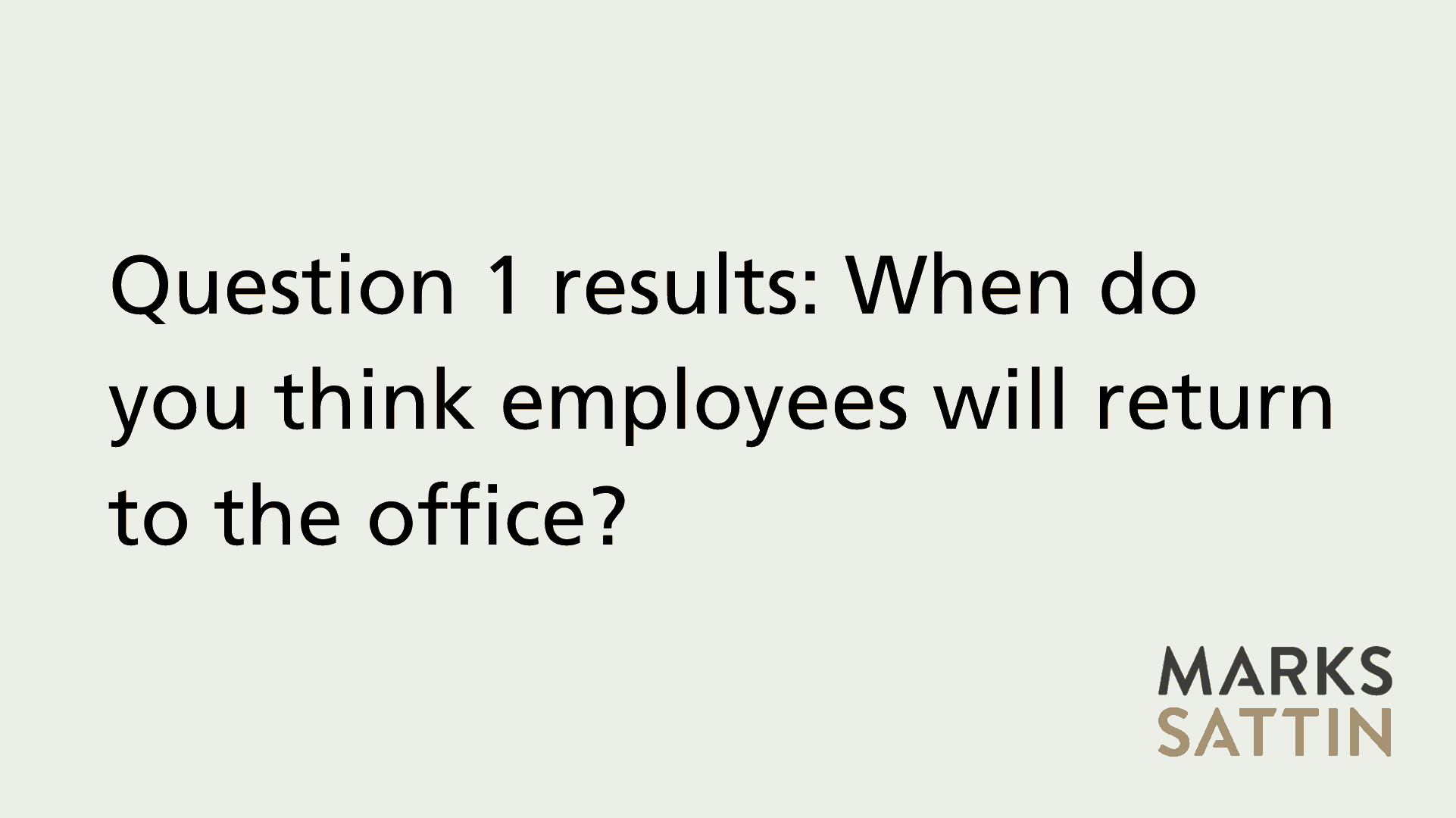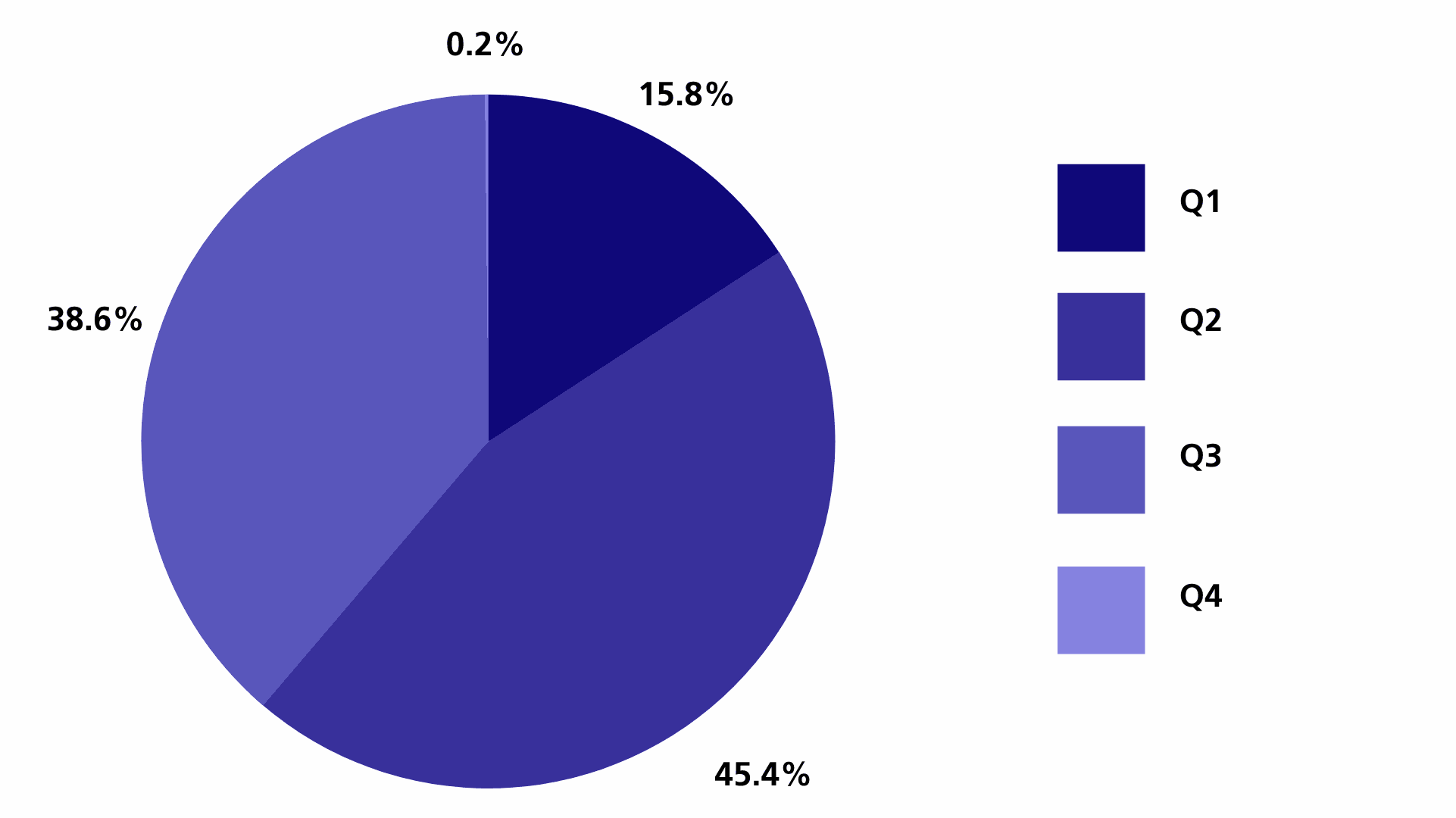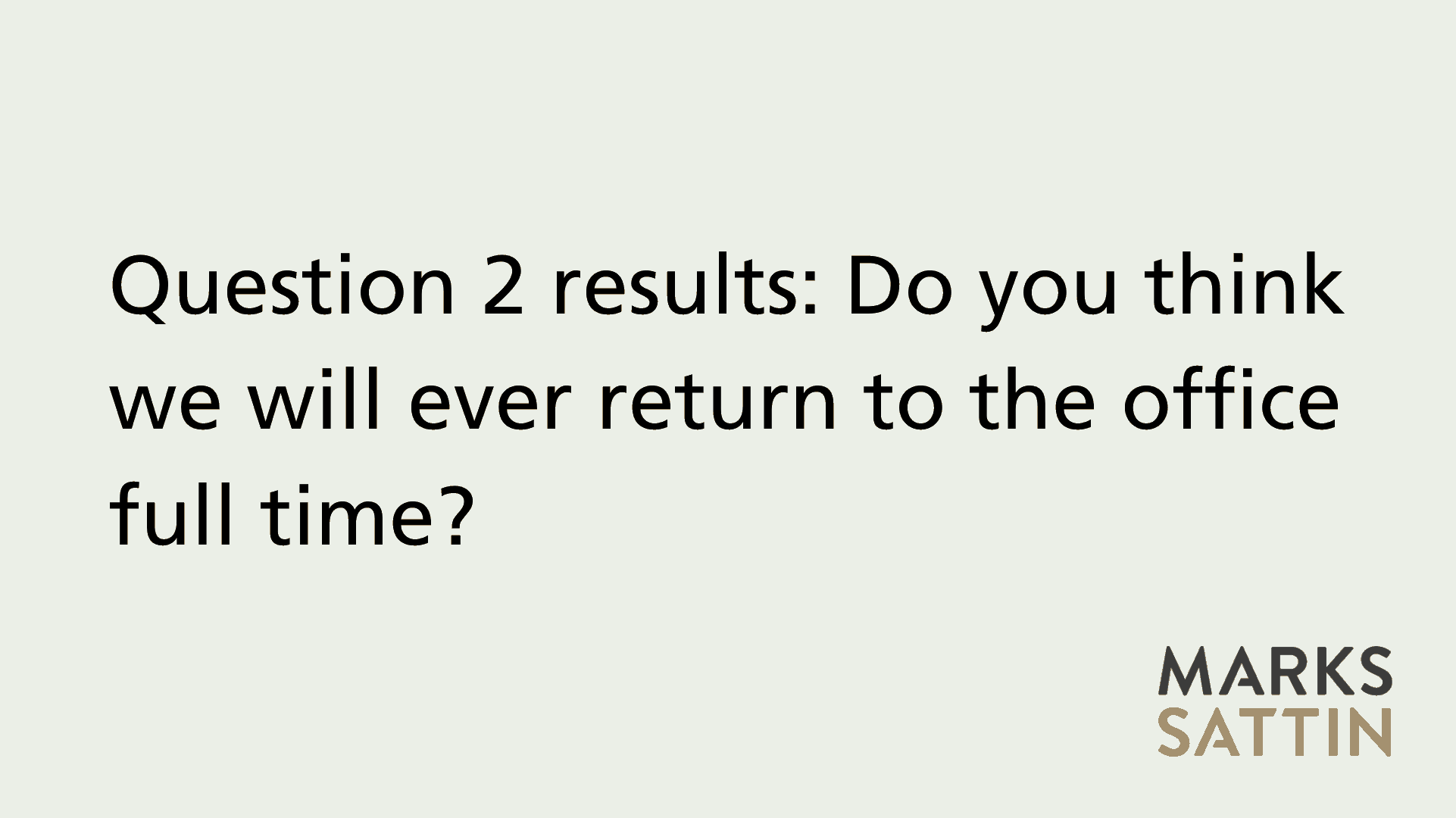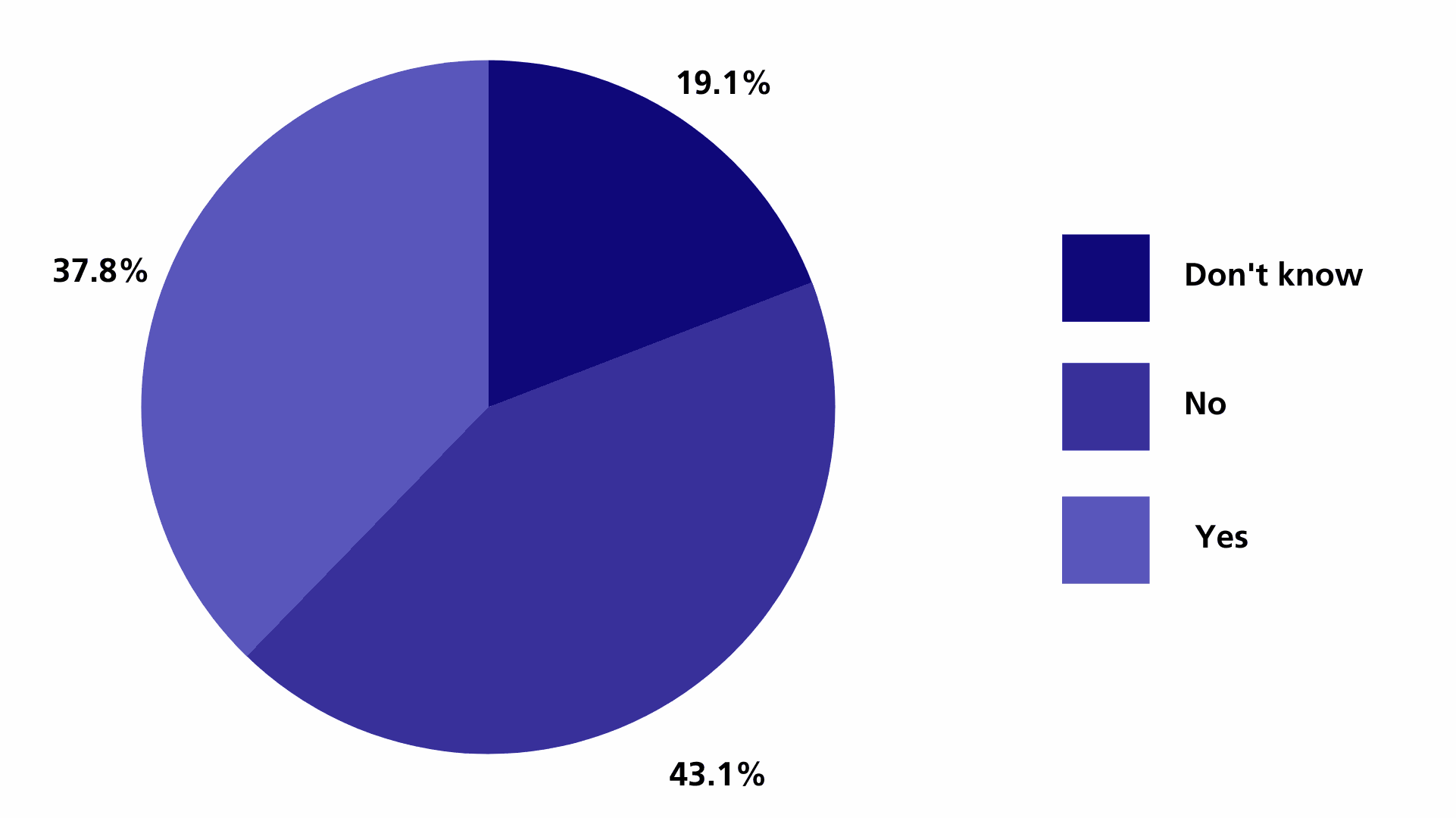We asked, you answered: Do you think we will ever return to the office full time?
- When do you think employees will return to the office?
- Do you think we will ever return to the office full time?
We must caveat the above results by stating that we ran this poll the back end of last year, before the second strain and third lockdown came upon us. Our circumstances are changing rapidly, however when we originally asked this question, most people thought that we would return to the office sometime in Q2 (45%). Regardless of when we will return to an office environment, most respondents believe that flexible working is here to stay, with 'a large percentage continuing to work from home due to a reduction in office space to save costs'. Another respondent echoes the above by commenting:
Now that people have proven that they can work just as effectively and collaboratively while being remote, I think most people and businesses will adopt far more flexible work patterns where appropriate. This means that cost savings can be realised through cutting down on office space, while also giving employees a better work life balance. "
You can read a related article we published called, ‘Rethinking workspaces – how will your company adapt to the new normal?’.
However there were challenging arguments to the above train of thought, with one participant stating, 'Though it was a good experience to do smart working, for creation and idea development, working together is a more conducive environment'.
In addition, some respondents flagged that the road to recovery will not be so clear cut, commenting, 'Due to the disruption, recovery is likely to be asymmetric and non-linear across industries and geographies', while another drew attention to some of the challenges, saying 'most organisations haven't yet implemented the correct H&S approach in terms of safely bringing people back to the office'.
The dominant answer to this question, at 43%, was ‘No, we won’t return full time’. The main reasons participants voted this was the substantial savings that businesses have made when they cut the office rents and related facilities from their overheads, as well as the benefits of not having to face the daily commute.
However, with 38% of respondents voting for ‘Yes, we will return full time’, and a substantial number of people saying they are not sure, there isn’t a clear cut winning answer to this question. Interestingly, there were far more arguments in favour of the return to the office environment in the qualitative data, for example, one comment said, 'It's more efficient to work at the office, it allows for a better balanced work life, and people are naturally attracted to working with people'. Other comments echoed this sentiment for instance, ‘People miss the social aspect of the office environment, they miss their colleagues’, ‘An office environment is more conducive for collaboration and innovation’, ‘collective work is more focused and purposeful. This makes gathering in one space natural’, and ‘there are mental health implications from working full time in isolation’.
One participant drew attention to the loss of office culture that we all experience when we work remotely, and pointed out that
New and/or young employees need the office environment in order to network and learn a company’s culture and the way things are done. "
While we all acknowledge that we are overly dependent on virtual meetings at the moment, one commented on the drawbacks of virtual meetings, saying, ‘Body language and personal interaction are a core component of work and interpersonal relationships, which you cannot get remotely'. Similar to the sentiments in the first question, many participants believe that the answer isn’t ‘a’ or ‘b’, the answer is one of flexibility and a ‘blended’ approach. (You can read a blog we published pre-Covid on this topic called, ‘Is flexible working a win win?’, which examines the practical challenges of ongoing flexible working, and some legal obligations for employers).
It’s clear that people are keen to get back to normal at least some of the time - the office is normal, with one professional citing all the ‘normal’ things we are missing, such as ‘Connecting with people. Sharing a conversation without having to dial in. Going for a coffee break. Travelling. Having a proper desk. Sharing a smile!’.







